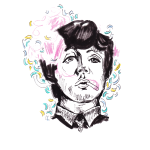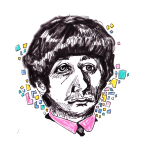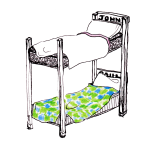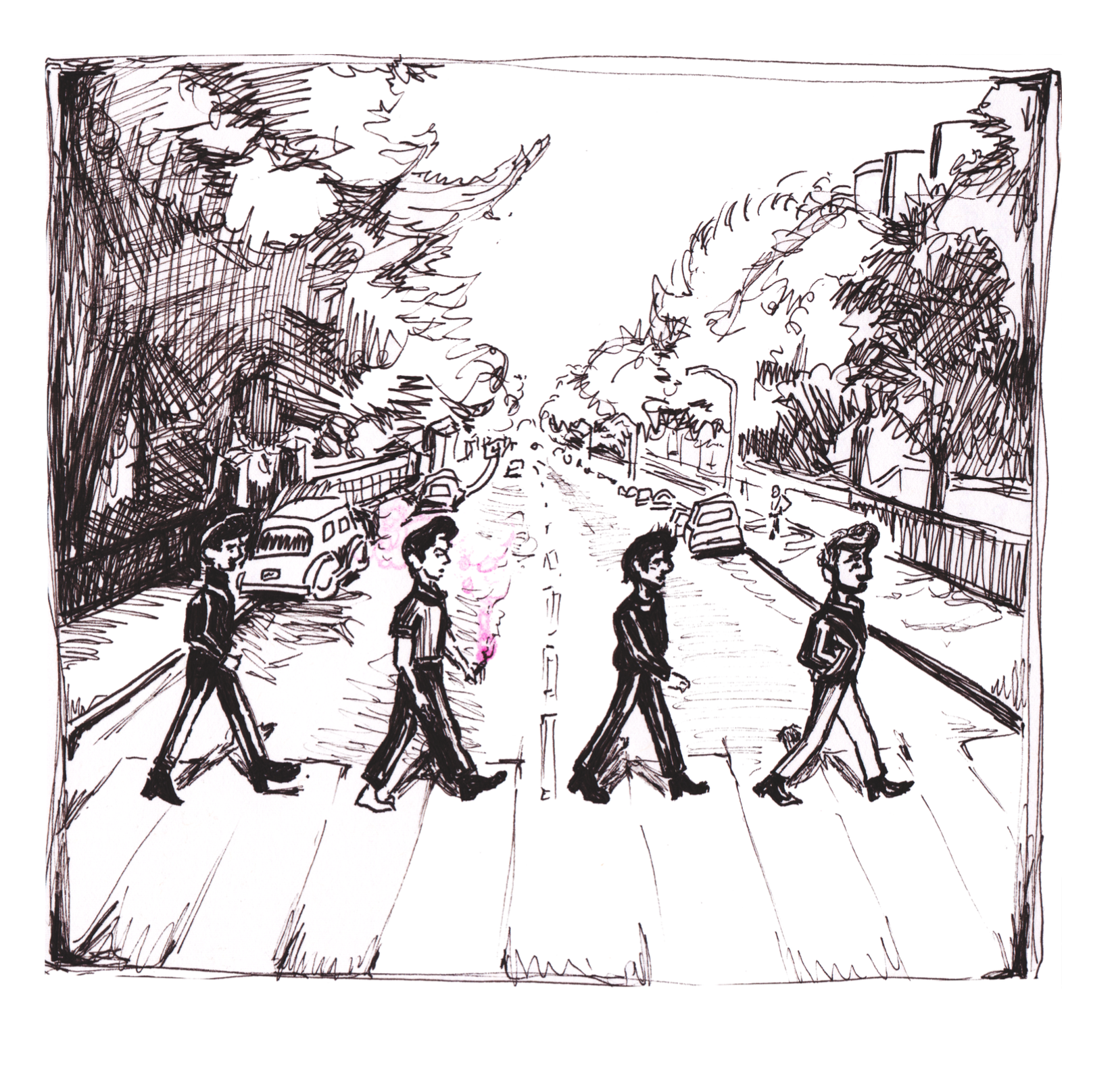Jack Murphy is a Bridgeport-based writer and teacher, currently teaching at Truman Middle College in Uptown. He and illustrator Melanie Jeanne Plank recently released Beware of Napkins, a book of Beatles-inspired illustrations and poems. It is dedicated to Sister Mary, the administrator at the now-closed St. Gregory High School in West Edgewater, where he taught a class on the Beatles. A previous book of his, My Apartment in Chicago, shared these poems’ creativity of form and love of pop culture. In addition to poems and illustrations, Beware of Napkins, features a series of fictional letters between a Beatles-loving father and daughter that serve as a narrative thread grounding poems that explore legacy, family, and the connective powers of music. Murphy’s work has appeared in both of the Weekly’s Lit Issues.
How does Beware of Napkins speak to readers who aren’t Beatles super-fans?

I didn’t want to come off as a fanboy—every page like, wow, isn’t this song so good? Remember that lyric? It’s more human than that. Writing a collection about one band acknowledges that the one band is super great and really exceptional, but I tried to drain that out a little bit. One poem is about Mal [Evans], their roadie. You see these videos, and the Beatles are just chilling, and in the background, you see Mal, carrying in amplifiers and all that. There are people behind them that are making this work too. The music is at the heart of it, but the focus is really on everyone around the music, that the music has brought together: the people who are listening to it, the people in the background. That’s what I was most interested in.
What drives you to write about pop culture?

I try to write about the most important thing to me at any given time, and the Beatles were this really important thing to me, not just because I love their music but because I taught a class about the Beatles in my old school, and my old school got shut down. Then I no longer had this place to connect with students over music, so I felt this gap there. Whenever I had a Beatles thought that I maybe would have talked about in class, I wrote poems about it. In some ways, the poems treat the Beatles as a piece of pop culture, and in other ways, the Beatles are such a personal part of so many people’s lives and a huge part of my life: things I talk about in class I feel an extra-special connection to.
Does being a writer affect how you teach?

Definitely. I teach American literature, I teach writing, and that’s probably what I’m best at. I talk to them like a writer—not as a teacher teaching writer—I feel like I’m a writer who is teaching. Teaching writing informs what I write because I’m constantly thinking about it, responding to students asking questions, to what students are doing. You might have a feeling as a writer, but as a teacher, you have to be able to articulate it.
What was the relationship between the poems and the letters in Beware of Napkins?

The letters were a really great way [to add content]—I wanted more pieces, and those are easy to do, I could write fifty of those. It’s an easy way to write my fandom into my character’s mouth. The dad is saying, “I can’t believe how fast their hair grows,” and that’s something I used to think. You can’t write a poem about that detail but it fits into that narrative, that story—the dad would have noticed that. The letters were really useful to give the book this narrative all the way through. I didn’t want it to be just about the four Beatles, that I thought they were these gods, because in that sense they’re not that important. It’s really about this dad and this daughter, and they’re using the Beatles as a way to connect.
You’ve written flash fiction in the past. Why poetry for this project?
If I have an idea, I don’t care ultimately if it turns out to be a short story or poetry. I don’t privilege one over the other, but I think that writing a poem—you know what, maybe I don’t think that. I think I’d rather write a great poem. There’s something extra-special about a poem, there’s something more mysterious about it. There’s something lurking underneath it, much more so than in other pieces. When you’re writing in longer form, you have more of a tendency to just say it. With a poem, you have less space, less time, so you have to hide more. It’s more shadowed.
Jack Murphy and Melanie Jeanne Plank, Beware of Napkins. Self-published. Available at jackmurphychicago.com. 52 pages. $15
On Liverpool Losing the Beatles
Liverpool, 1978
It’s a sort of death
when what belongs to you alone
becomes something owned by us all.
Now I see that the Last Supper’s burning spirit
will never belong to Vatican City,
that you can be young and great only
once, that there are things only 17 year olds
know. I love you still,
though I neither clip your articles
nor record your shows.
I no longer defend you to my father
he’s finally come around.
When I play Abbey Road,
I lower the volume to nothing.
I look beyond and through the cover,
remember you as you were,
imagine you’re walking home.
John & Paul
They must have each remembered still
when they’d been in love.
Even after becoming lost in
a series of well-worn anecdotes,
there must have been nights
when their time together felt real again,
nights when each allowed the feeling to return.
In the dark, all that’s left are dingy
dressing rooms, motel twin beds,
a van with some feet of space
between guitars and amps.
What ecstasy—what relief to find a twin
and opposite in the house down the street,
on the bus on the way to school,
who recognizes his same sadness in you,
and you in him; who possesses
what you possess: a talent to equal
and challenge, a spirit you can share, a voice
with the perfect grooves and slits
to complement your own.
Before the colors of youth are drained,
the country of childhood abandoned,
what love can be shared by teen-aged boys
who both love rock n roll.
What drama. What absolute neediness
and release.
Consider George
My father would say:
Learn from the bigger kids.
Beat them. Copy their
haircut, then keep growing.
You’ll always be three years
younger. Use them.

